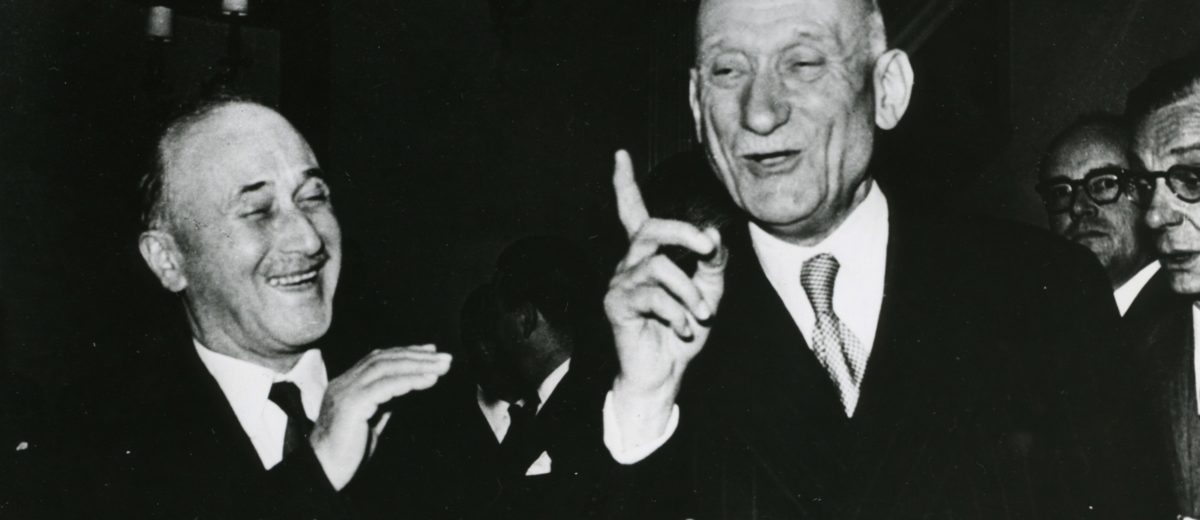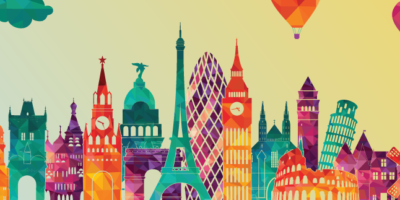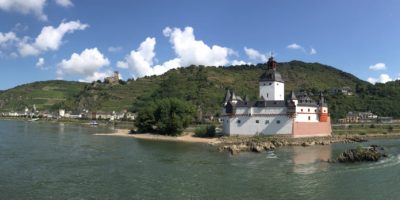Germany is expected to choose Angela Merkel for a fourth term of office as chancellor at the polls this weekend. The unknown factor is who will be her coalition partner(s): the Greens, the Liberals or the Socialists.
To prepare for the elections, a church near Hamburg invited Romkje and myself this past weekend to talk about the spiritual roots of the European Union and to offer some background thoughts on key issues of the election, including migration, populism, the EU and green transport.
I was conscious as I spoke of claims made in a new Dutch book, De geboorte van Europa (The birth of Europe) by a Belgian historian, Rolf Falter, that the story about the EU being established on the basis of brotherhood was a myth perpetuated in our school books. The real reasons were far less idealistic, the author argues: pressure from the Americans, fear of Russian intentions and German resurgence. Ugly compromises and national self-interest dictated the course of events.
Several people had drawn my attention to reviews of this book over the past weeks. I can agree with much in his thesis. The EU story is very messy and can be viewed from many angles. As with the proverbial blind men describing the elephant, different perspectives offer different stories, none perhaps giving the full picture but each giving part. As I wrote in Deeply Rooted, following the start triggered by Schuman and his peers, the process has followed a very twisted route and at times has hung on a slender thread.
Trigger
The idea of European unity has had a long prologue over centuries. Nevertheless Schuman’s unique contribution was to trigger the process–on ‘Europe Day’, May 9 1950–a process that has continued till today, albeit without always remaining true to his plan.
Yes, American pressure did play a key role. The Schuman Plan was a response to American pressure for the French to come up with a solution to the ‘German problem’. The Marshall Plan, the initiative for the United Nations and NATO were all essential for the keeping of peace. But from Schuman’s point of view, none was sufficient in itself. A heart change had to happen involving the Europeans, particularly the French and the Germans.
Even when imprisoned during the war by the Gestapo, Schuman had smuggled out letters to his fellow Frenchmen insisting that they would have to learn to forgive and love the Germans to rebuild a post-war Europe. After the war, NATO and the Marshall Plan were essential pieces of ‘scaffolding’ on the outside; but change had to happen on the inside. Unfortunately Schuman’s insistence that the project had to have a ‘soul’, and must not remain simply economical and technical, has repeatedly fallen on deaf ears.
De Gaulle’s attitude for example was ‘France first’ while Schuman urged a spirit of solidarity, seeking the common good. De Gaulle embraced the European Economic Community not out of a ‘spirit of Europe’ but to contain his enemies from close by.
Movement
The story of the Christian roots of the EU is essential to tell again and again. It gets ignored or lost in the secular version, but is vital for providing adequate foundations for any community of peoples, united in diversity. As ultimate reality is the Trinity, united in diversity, this biblical understanding is the only sufficient ground for such community.
As Christians, we should know the role of Christian thinking in shaping both Europe and the start of the EU process, particularly Catholic social teaching stressing human dignity and solidarity. We need to embrace our responsibility to help shape the ongoing process; not to withdraw fatalistically and simply criticise.
For most of us, however, the EU is too far from our daily realities. How can we non-politicians contribute to promoting a sense of belonging to a larger family of peoples?
Most if not all of our nations have special national days, when we celebrate a healthy patriotism (e.g. Bastille Day in France (July 14), Koningsdag in the Netherlands (April 27), Unification Day in Germany (October 3)… ). Why shouldn’t we also celebrate being part of the larger European family of peoples? Why shouldn’t we acknowledge the riches we have received through our neighbours–in music, the arts, sports, food, trade, literature, education, scientific and medical knowledge … and much more.
Here’s our proposal: to initiate a non-political, pan-European May 9 Movement to celebrate belonging to a broader community of peoples. It would promote unity with diversity, increase awareness of our need for interdependence and raise understanding of how much our cultures are intertwined and our futures are interrelated.
Just how we can do this, we’ll explain in the next weekly word.
So,
Till next week,



